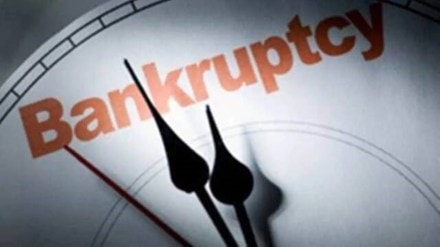The Insolvency and Bankruptcy Board of India (IBBI) has proposed the adoption of system of single transferable vote for creditors to decide on resolution bids for bankrupt companies, in a move aimed at maximising the chances of the plans getting approved. In a discussion paper floated by it, the regulator suggested a preferential voting method wherein the creditors can rank their preference on bids received, rather than merely vote for or against one or more bids, as at present.
Effectively, this would result in an elimination process, and increase the chances of plans securing the 66% voting threshold for approval.
Also read: Uttar Pradesh to bring new policy for ‘M-Sand’ manufacturers, offer MSME-related benefits
Experts, however, called the proposed system not only “complicated”, but also “bad in law.” “It amounts to forcing the creditors to approve one of the plans on offer. The proposal is also not in conformity with the Insolvency and Bankruptcy Code,” said a source familiar with the evolution of bankruptcy law and regulation in India, asking not to be identified.
“In order to ensure that preference of plan is captured, and creditors are able to vote freely, it is proposed to use system of voting with preference,” the IBBI said in the paper.
The paper said: “It is observed that the creditors vote in favour of all available compliant resolution plans to avoid being a dissenting creditor. The situation commonly occurs in several real estate cases where the real estate allottees vote in favour of all available plans in order to ensure that they are not dissenting creditor and the corporate debtor (CD) does not end in liquidation, as liquidation leaves the real estate allottees with no relief. The current voting framework does not offer a system for creditors to elicit their preferences on these plans.”
Noted insolvency lawyer Sumant Batra said: “The regulator’s proposal is tantamount to replacing the wisdom of of the committee of creditors with an arithmetic formula. It interferes with market dynamics.” He added that it may not be legally tenable to create an “artificial majority” in CoC with this voting method, leave alone the necessity of the regulator initiating it.
Batra, however, said the regulator’s concerns over many apparently feasible resolution plans not passing muster with the CoC may be valid.
According to the IBBI’s proposal, if no plan achieves the 66% required votes, the plan with the least first preference votes is eliminated and its first preference is allotted to the second preference. It proceeds on the basis of a process of elimination and exclusion, whereby the plans with the lowest number of preference votes are excluded. In case no plan is able to secure the requisite 66% votes, then it may be taken that the committee of creditors has not approved any resolution plan.
IBBI has sought comments on the discussion paper by June 27.
Also read: Ajai Chowdhry’s 5-point strategy to make India a semiconductor manufacturing hub
Among others, IBBI has also suggested more flexibility for creditors to come up with their claims after a company is admitted into bankruptcy proceedings so that those who missed the 90-day window need not go to tribunals to secure an exemption.
“Extend the timeline for claim submission until 90 days from the insolvency commencement date, or up to the date of issue of latest RFRP (Request for Resolution Plan) under Regulation 36B whichever is later. This extension will provide greater flexibility for creditors, especially in complex cases, allowing for a more thorough.
The IBBI proposed that the authorised representatives (ARs) of home buyers sitting in CoC of distressed real estate developers will have to carry out certain duties to make the resolution process successful.
